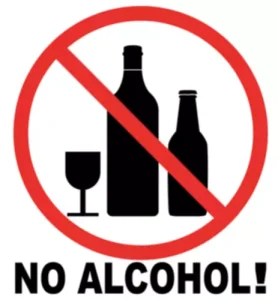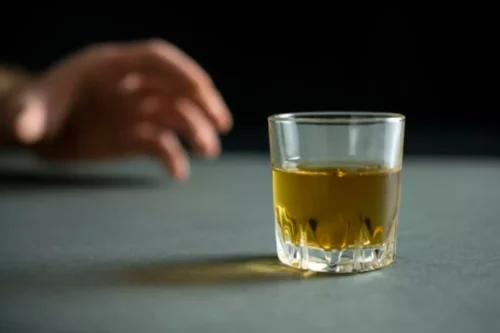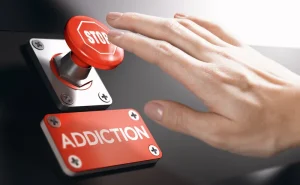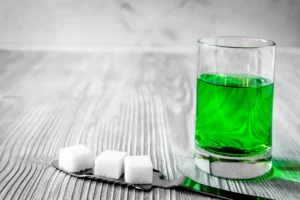
While this process makes the skin feel warmer, the widening of blood vessels is actually the body’s way of cooling itself down after alcohol consumption. For this reason, your skin might feel warm after drinking alcohol because your body is simply trying to push the heat out. What’s more, there’s a recognized link between alcohol and low body temperature, which is why drunk people are at risk of hypothermia.
Is Alcohol Flush Reaction Common?
Two scientific panels are investigating the relationship between alcohol and health. Dietary Guidelines, which recommends moderation — one drink a day for women and two for men. The study contributes to the growing body of evidence challenging the previously accepted health benefits of alcohol consumption. Researchers are now employing new methodologies to reassess these claims, moving away from comparing drinkers with abstainers, many of whom gave up alcohol due to severe health issues. Such comparisons might have previously made light drinkers appear healthier by contrast.
What Can I Do To Stop Getting Hot When I Drink Alcohol?
Other risk factors include previous episodes of severe alcohol withdrawal. Consuming alcohol can speed up heart activity, which in turn can lead to dilated blood vessels and symptoms such as flushed skin, warmness, and sweating. Night sweats are a common sign of alcohol withdrawal, which is a condition that can develop when a person with alcohol dependency stops drinking alcohol.

Levels of Care
In other words, even once the worst is over, it might still take you a few days to feel better. This is yet another autonomic nervous system response to alcohol withdrawal. Tremors often affect the hands but can occur elsewhere in the body as well, according to the U.S.
Are Night Sweats Normal After You Stop Drinking Alcohol?
- Alcohol can suppress the immune system and dehydrate the body, which is counterproductive when trying to recover from a cold.
- However, if you start to notice symptoms such as excessive sweating after drinking alcohol, it might be time examine your habits.
- Alcohol flush reaction refers to facia flushing after drinking alcohol.
If you notice the symptoms of alcohol poisoning, it’s important to get medical help as soon as possible. Alcohol poisoning, also known as alcohol overdose, is a severe and potentially life threatening condition that occurs when someone drinks a lot of alcohol in a short period. During alcohol detox, medication can ease your discomfort and prevent symptoms from worsening. According to Hilary S. Connery, MD, PhD, the clinical director of the division of alcohol, drugs, and addiction at McLean Hospital in Boston, withdrawal medications are suitable for most people. As your body detoxes, nausea and vomiting are pretty common symptoms. If severe vomiting is present, you may need to receive IV fluids so you don’t become dehydrated.
- Alcohol withdrawal that progresses to delirium tremens causes intense hallucinations, as well as severe confusion, disorientation, and agitation.
- Some individuals could improve their symptoms by limiting the amount of alcohol they consume.
- Alcohol poisoning, also known as alcohol overdose, is a severe and potentially life threatening condition that occurs when someone drinks a lot of alcohol in a short period.
- In extreme cases, some people have actually died from hypothermia after spending too much time in cold weather while drunk.
- While night sweats are not one of the more serious symptoms of alcohol withdrawal, alcohol dependence may require additional treatment from a substance use treatment provider.
- Alcohol itself already causes dehydration, which is a major contributing factor to the symptoms listed above.
Therefore, toxic alcohol byproducts stay in your body, making you feel sick. For some people, sudden alcohol intolerance and menopause can contribute to alcohol-related hot flashes. Alcohol use already causes dehydration, which can lead to other hangover symptoms. Therefore, having a hangover symptom of sweating can further dehydrate your body, leading to additional hangover symptoms from dehydration. Rarely, severe pain after drinking alcohol is a sign of a more serious disorder, such as Hodgkin’s lymphoma.
- Although there are many benzos available, diazepam (Valium), lorazepam (Ativan), and chlordiazepoxide (Librium) are the most frequently used.
- Researchers are now employing new methodologies to reassess these claims, moving away from comparing drinkers with abstainers, many of whom gave up alcohol due to severe health issues.
- For some people, consuming an excessive amount of alcohol can cause unpleasant side effects such as sweating after drinking.
- It increases blood flow to the skin and impairs the body’s ability to shiver, making us feel warmer while reducing our actual core temperature.
Why Do I Feel Hot After Drinking Alcohol?
To treat alcohol flush reactions, you can first try managing symptoms with antacids or consider speaking with a healthcare professional for guidance. Delirium tremens (DT) is the most severe form of alcohol withdrawal. If you have night sweats along with some of the following symptoms, it could be a sign that you’re going through alcohol withdrawal. If you have night sweats but you haven’t consumed alcohol recently and you’re a regular getting hot when drinking alcohol drinker, it may be a sign of alcohol withdrawal. It’s best to go through an alcohol detox with the help of skilled healthcare professionals who can help you manage the uncomfortable symptoms and potential dangers of alcohol withdrawal. Feeling unwell after drinking is common, and hangover symptoms are often your body’s way of telling you to lay off the drinking and take it slow so you can recover from alcohol-related side effects.

But why does this reaction happen to some of us, and not all?

« A lot of people have sort of gone ‘well, actually, no, I don’t want to have a drink’ and it’s sort of become more OK, » she said. Ms Peddie said in her experience there is less pressure from peers to drink. « We’ve seen a growing number of young people not only in Australia but around the world who are choosing not to drink. Teenagers today are less likely to drink than the previous generation. « Parents feel under huge pressure to just give in, rather than just say ‘look it’s clearly not in your best interest, your brain is still developing’. » Professor Ian Hickie, from the Brain and Mind Centre at the University of Sydney, said for many young Australians drinking begins at about the age of 15 or 16.

One of the most common symptoms of alcohol intolerance is facial flushing, which can also cause excessive sweating. Drinking alcohol can cause some people to feel hot and may lead to night sweats. This occurs when alcohol affects the nervous system and how the body regulates and senses body temperature, blood pressure, and heart activity. The first symptoms—and maybe the only symptoms—you experience may resemble a bad hangover. She adds that withdrawal can also occur after a significant reduction in alcohol consumption. Additional contributors that can cause you to experience night sweats include the use of certain prescription drugs, low blood sugar, and other alcohol withdrawal symptoms.
